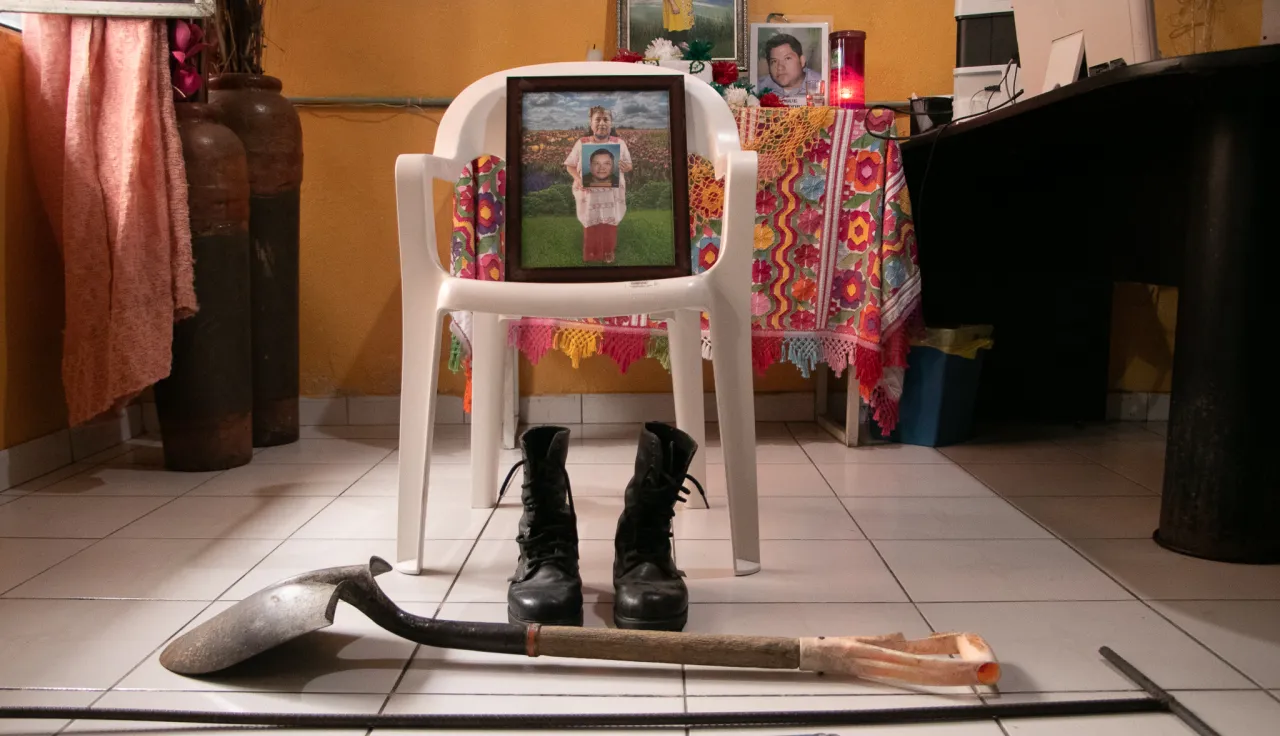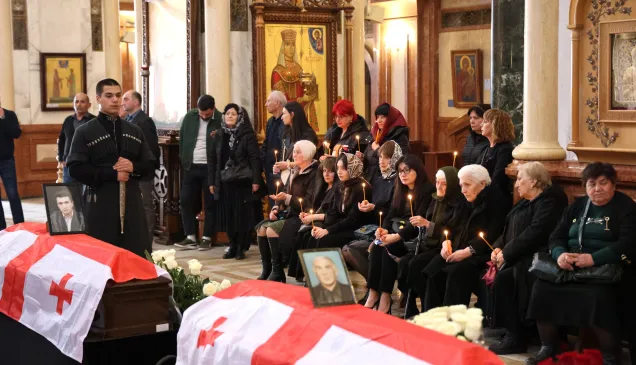Geneva (ICRC). On 30 August, the International Day of the Disappeared, the International Committee of the Red Cross (ICRC) will highlight the magnitude of disappearances in Latin America and the importance of greater coordination efforts by countries and institutions to mitigate one of the most painful humanitarian consequences of violence in the region.
The disappearance of people in the region is a complex issue exacerbated by violence and armed conflict, population movements and natural disasters. Searching for, locating and identifying missing persons, whether or not they are alive, is the responsibility of the authorities at all levels in accordance with their powers, as is the comprehensive care of their families. “Putting coordinated and sustainable state policies in place to address the root causes of disappearances, and prevent and eradicate them, must be a long-term political commitment that remains steadfast despite changes of government or institutions,” according to Marianne Pecassou, ICRC Regional Protection Adviser.
Despite the progress made in recent years, it is necessary to build on past achievements and invest in human, financial and technical resources to strengthen the institutions responsible for responding to this humanitarian emergency. Interstate coordination is essential, especially if the person goes missing somewhere other than their place of origin.
The ICRC has identified clear challenges in the region, such as the insufficient application of effective legal parameters that explicitly recognize the rights of missing persons and their families. This contributes to the lack of protection for those affected. Failure to ratify international agreements and significant underreporting of cases are additional challenges. In addition, there are barriers to access to the institutions responsible for recording cases. Relatives often fear reprisals when the disappearance is connected to armed violence.
Improving coordination between the actors involved in the search process and ensuring a humanitarian approach would help mitigate these challenges, placing the affected people at the centre of the search process. In the case of missing migrants, it is the ICRC's view that this should be addressed in coordination between countries of origin, transit or destination. Ecosystems for managing and exchanging information and generating search and identification mechanisms need to be strengthened.
In practical terms, the ICRC recommends that states act to ensure access to information and protection mechanisms, promote interinstitutional and cross-border coordination initiatives, use centralized databases, develop effective legal frameworks and strengthen institutional and technical capabilities. It is also important to avoid the stigmatization that affects separated and missing persons and their families.
To help mitigate the humanitarian consequences of missing persons in the region, the ICRC works in coordination with national and local authorities to create policies and mechanisms to respond to this problem. It also provides support to the relatives of missing persons, enabling them to participate more fully in the search process and in developing public policies.
In addition, the ICRC cooperates with forensic systems to ensure the proper management and dignified treatment of the deceased, asserting their right to be identified and returned to their families. The ICRC promotes the prevention of disappearances. It engages in confidential dialogue with the authorities concerning the protection of family ties, providing channels for separated family members to re-establish contact.
Here are some specific figures:
Brazil: According to official data from the Ministry of Justice and the Brazilian Forum on Public Security (Fórum Brasileiro de Segurança Pública), a person is reported missing every six minutes in Brazil. This is a 3.2 per cent increase on 2022 and there is a persistent difference between the number of people missing and located. The ICRC is continuing to work with the authorities responsible for national policy on the search for missing persons, in order to support the coordination of the various initiatives in place. Priority should be given to the creation of a national and coordinated network of interdisciplinary assistance in the country, based on existing public services, to assist relatives based on their needs.
Colombia: Despite the signing of the Peace Agreement between the former FARC-EP and the Colombian Government in 2016, there are still frequent cases of disappearance in the country. This is due, among other factors, to the eight non-international armed conflicts and other violence affecting the population. Between the entry into force of the Peace Agreement (December 2016) and 31 July 2024, the ICRC documented 1,730 new cases of disappearances. Although there is a robust institutional structure in place, the magnitude and complexity of the problem pose challenges for search efforts, forensic identification and addressing families' needs.
Mexico and Central America: According to official Mexican figures, there are more than 116,000 disappeared and missing persons in the country. More than 5,600 illegal graves have been discovered. In parallel, civil organizations have reported 52,000 unidentified dead bodies, a figure acknowledged by the Mexican authorities. In Central America, the exact number of missing persons is unknown, as there are no centralized and updated records. However, although it is fragmented, the public and official information available reveals that disappearance is not consigned to the past. According to data from the Missing Persons Unit of the Police Investigations Directorate (Dirección Policial de Investigaciones – DPI) in Honduras, between 2012 and 2022, a total of 9,838 people were reported missing. In Guatemala, the Ministry of the Interior reported that in December 2023, 3,245 people over the age of 18 were missing, and at least 45,000 went missing during the internal armed conflict between 1960 and 1996. In El Salvador, between 8,000 and 10,000 disappeared during the internal armed conflict between 1980 and 1992.
Peru: There are more than 22,550 missing persons from the 1980–2000 period of violence, according to data from the Ministry of Justice and Human Rights. There are two complementary search systems: criminal investigations conducted by the Public Prosecutor's Office and humanitarian investigations conducted by the Directorate General for Searches at the Ministry of Justice and Human Rights. The ICRC assists families and authorities in this process. It promotes appropriate channels for exchanging information and mechanisms to strengthen coordinated interinstitutional work to increase the level of response when trying to locate missing persons.
About the ICRC
The International Committee of the Red Cross (ICRC) is a neutral, impartial and independent organization with an exclusively humanitarian mandate that stems from the Geneva Conventions of 1949. It helps people around the world affected by armed conflict and other violence, doing everything it can to protect their lives and dignity and to relieve their suffering, often alongside its Red Cross and Red Crescent partners.
For more information and to arrange interviews in English, Spanish, French and Portuguese:
Isabel Ortigosa Barbero (Geneva): iortigosabarbero@icrc.org (41) 792173233
Ana Langner Leyva (Mexico): olangnerleyva@icrc.org (52) 55 37176427




